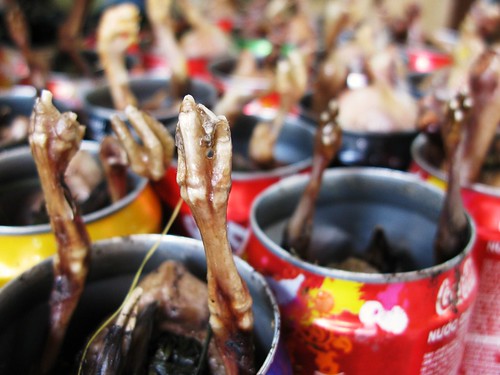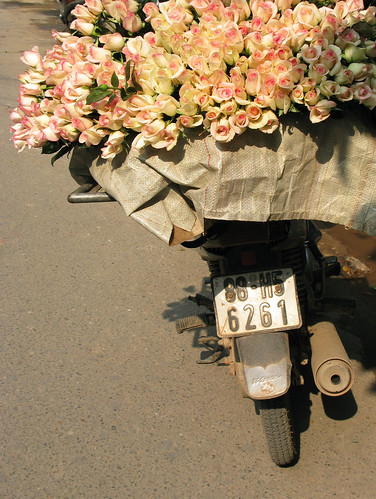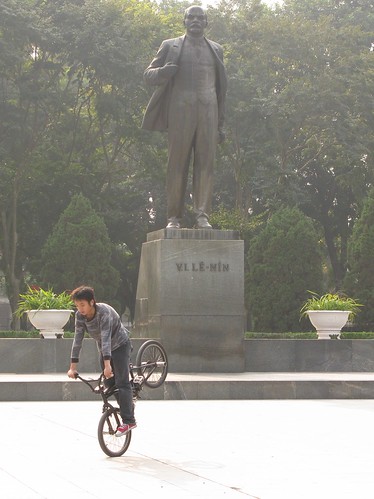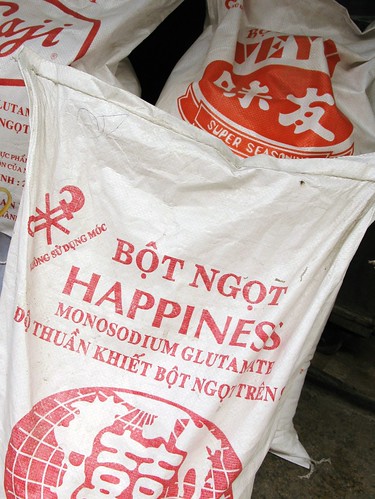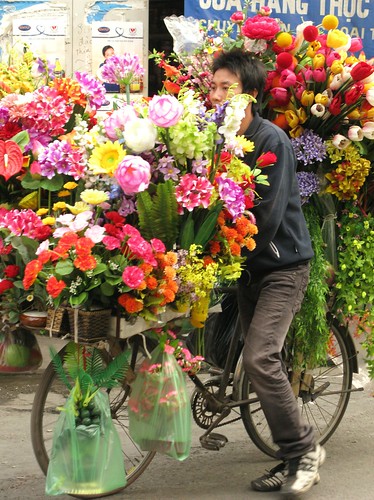Just like in the movies
Todd and I are literally forcing ourselves out of Vietnam. After five weeks of south to north exploration, we’ve looked at our waning travel calendar and the list of places still to visit, and we know it’s nearly time to leave. That, or find jobs in Hanoi.
Our expectations of what Vietnam would be like were based on images from the brashest Hollywood war movies, opinions from other travelers (usually “Vietnam was okay, really rainy. Laos is much better!”), and facts from a phenomenal undergrad history class I took at NYU taught by Marilyn Young. These expectations were quickly unmade, leaving us raw and ready for anything.
When we recently Skyped with our families, both our mothers – Long Island women of the same generation – shared near identical grief: “Oh, that poor country. After what we did to them, what could be left?” Knowing of the massive wartime bombings, my mother – who has always been so compassionate that my family has nicknamed her “Mother Theresa” – even asked “Are there many buildings?”
This isn’t naiveté. I had a screwy picture of Vietnam myself – I imagined a countryside covered with thick, wet tropical forests, tiered green rice paddys, and rolling hills. Girls wearing ao dai and tweaked out, grey-haired American GIs would fill the streets, while old women sporting conical hats would work the fields. I’d explore quaint, rebuilt towns to a soundtrack of American classic rock and eat bowl after bowl of bún thịt nướng.
Somewhere in Vietnam, each stereotype is true. But everywhere else, the country is bursting, modernizing as fast as the game of catch-up allows. All the while, Vietnam is nurturing a national character on its own conflicted terms.
Communist rule is ever present, but muted in appearance (to travelers at least). The Voice of Vietnam, the country’s national radio station, is broadcast loudly on the street each morning, the alarm clock of the masses. Too many kids spend the day at work or roaming around; though Communism was intended as an equalizer,Vietnamese parents need to pay for anything beyond elementary school, which of course many can’t afford. Uncle Ho is still the man, even in death. Corruption and commercialism are both rampant, and everyone seems to work too much, too long, too hard.
The young Vietnamese woman who runs Manh Dung Guest House in Hanoi is exhausting to watch and distracting to be near. Over the last couple of days, as I’ve sat in the hostel’s minuscule lobby, Thom‘s been ever present from 6 am until 11 pm, when the lobby transforms into a bedroom for her aunt who sleeps on the floor in case there are any late arrivals.
Mouth and hands covered in sauce, she insists on sharing her BBQ rib dinner. She gleefully sneaks handfuls of lychee-flavored hard candies into my pockets. She sings loudly, often, and without embarrassment. She tells me about an awful pair of tourists, European men with bitter cigarette breath and whiny voices, who make unreasonable demands. She laughs constantly, after everything she and everyone else says, which is simultaneously irritating and endearing. Even when she’s chatting, she’s always on, interrupting her own stories to shout out the open front door to passing tourists, “Hello!You need a room?”
So, I’m dazed when, amidst the chaos of the busy hostel lobby, Thom checks her usual exuberance, lowering her voice to ask me something serious.
“Do you like being an American?”
At first, it seems like the simplest of questions, easy to answer – of course I like being an American. I’ve liked being an American even when I’ve disagreed with my government’s policies, when I was denied health insurance at the age of 28, when I hear Danes brag about their month of consecutive vacation time, when I think about how selling dildos is still illegal in Texas…
Wait. That’s a very good question. Do I really like being an American?
Since Todd and I moved to California ten years ago, we’ve grown attached to what we call our “San Francisco bubble,” our community of liberal freaks that throw BYO-sock-puppet parties, haul out to the Nevada desert for a week of cultural mutiny at Burning Man, and eat both tofu and sushi willingly and often. San Francisco is definitely not representative of America, but only in America is a city like San Francisco possible.
During my and this young woman’s short lifetimes, Vietnam has raced to rebuild and redefine itself. She grew up in a Vietnam much different from the Communistic-capitalistic, workaholic country I’ve witnessed. She’s experienced a country more insular, paranoid, and divided – a Vietnam that wasn’t discussed in my history class, that isn’t within any Hollywood scriptwriter’s imagination, that many tourists didn’t, and in fact couldn’t visit. Even today, there’s little overt counter-culture in Vietnam; if it’s here, it’s buried far from the prying eyes of the Party. I could happily live in Hanoi for a while, but it would never be home.
She’s waiting for my answer. She’s never been this quiet or intense.
“It’s not a matter of like or dislike,” I finally say. “I don’t know any different.”
Thom looks away from my face, down at her small, cluttered reception desk. “You’re lucky. Very lucky.”
Photos from Hanoi, Vietnam
If you can’t see the photo slide show above, view the photo set on Flickr.
<

